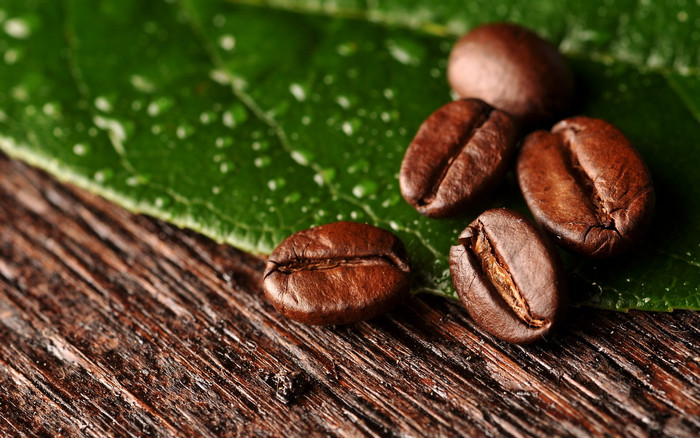
If you use more tea leaves with a higher temperature and brewing time the overall caffeine levels will be higher. Does Tea Naturally Have Caffeine.

Tea bags naturally provide a standard amount of tea leaf but if using loose leaf tea you could add more to the pot to increase caffeine.
Do tea leaves have caffeine. Tea leaves contain approximately three percent caffeine content by weight. But factors like soil chemistry type of tea plant and whether the tea leaves are dry or wet can affect caffeine content. There are a few factors that affect the levels of caffeine in your cup of tea.
Generally broken tea leaves as found in tea bags will impart more caffeine when brewed compared to whole leaves. The amount of tea used The more tea leaves added to a cup the more caffeine will be released. Tea bags naturally provide a standard amount of tea leaf but if using loose leaf tea you could add more to the pot to increase caffeine.
Tea has many health benefits such as reducing your risk of heart disease protecting your bones weight loss and a high amounts of antioxidants. There are studies however suggesting that tea leaves contain more caffeine than coffee beans. Caffeine is not really that bad in small doses but it can still cause anxiety and insomnia for some.
For those of us in the tea industry the question whether all tea contains caffeine is a loaded one. There are so many factors in play. First true teas come from the plant Camellia Sinensis or a subspecies of this plantWhat makes Black Green Oolong Yellow and White tea different is how the leaves are processed.
Therefore it can undoubtedly be said that all teas have some level of caffeine. Does Tea Naturally Have Caffeine. Yes tea does naturally have caffeine in it.
Understand all true teas are derived from a plant known as camellia sinensis. All camellia sinensis leaves naturally contain caffeine. As such so does any tea that is made and consumed from these leaves.
In some cases the caffeine is removed from the tea leaves to create decaffeinated tea. However it should be noted. Caffeine is the tea plants self-defense mechanism to keep pests at bay.
Younger leaves or the younger parts of the plant have the most caffeine so they can get the most protection. Conversely older tea leaves will have less caffeine. This all means that the exact kind of leaves your tea.
The tea plant produces caffeine as a natural defense to ward off insects and pests. The highest concentration of caffeine occurs in the youngest tea leaves typically found at the top of the plant. This is because insects tend to attack young shoots and leaves which are juicier compared to leave in the middle and lower part of plants.
Do Tea Leaves Have Caffeine May 29 2019 Get link. This all means that the exact kind of leaves your tea is made of matters very much. Tea bags naturally provide a standard amount of tea leaf but if using loose leaf tea you could add more to the pot to increase caffeine levels.
Your Tea Questions Answered A New Leaf Llc. Tea leaves contain 35 caffeine while coffee beans have 1122. However the coffee brewing process uses hotter water which extracts more of.
Caffeine is present in coffee as well as tea which is sipped by a huge number of people in their daily life. People look for healthy teas without caffeine and try various options to improve their health. But what makes this thing difficult is the confusion while choosing among all the available caffeine free teas.
Similar to decaffeinated coffee decaffeinated teas still have small amounts of caffeine from the tea leaves used. So if you are very sensitive to the effects of caffeine you should avoid decaf teas and coffees too. The next part is called steeping and this is where you leave the tea in the loose leaf tea infuserstrainer.
As you do this the flavor will exit the leaves to infuse the water surrounding it along with all that goodness. The amount of time that you leave the tea is going to depend on the type of loose leaf tea youre brewing. An average tea leaf contains 3 caffeine by weight but this can fluctuate.
The younger leaves and newly formed tea tipsbuds are usually higher in caffeine than the older leaves. Older leaves are stronger and have a lower caffeine content. In addition the leaf stems will have low levels of caffeine.
Tea preparation also plays a large role in the level of caffeine. This can be a combination. Tea does not only have caffeine in the leaves but will also release caffeine as a seedling and in its roots.
This is where the caffeine is most efficient to remove competition and allow for growth. This is where the caffeine is most efficient to remove competition and allow for growth. Do tea leaves have caffeine.
The greater the antioxidant to counteract its effects. How Much Caffeine is in Tea. Everything You Need to Know.
Similar to white tea tea While tea does not have as much caffeine in it as coffee or other substances tea leaves do tend to have a higher caffeine content than coffee beans caffeine is more soluble in dichloromethane than it is in water The more. Young tea leaves contain the highest amount of caffeine and antioxidants. The more caffeine a tea leaf produces the greater the antioxidant to counteract its effects.
Black tea generally has the most caffeine but the way you steep your drink will also affect caffeine levels. If you use more tea leaves with a higher temperature and brewing time the overall caffeine levels will be higher. Does the tea grade affect caffeine levels.
Tea grades refer to the condition of the tea leaves.